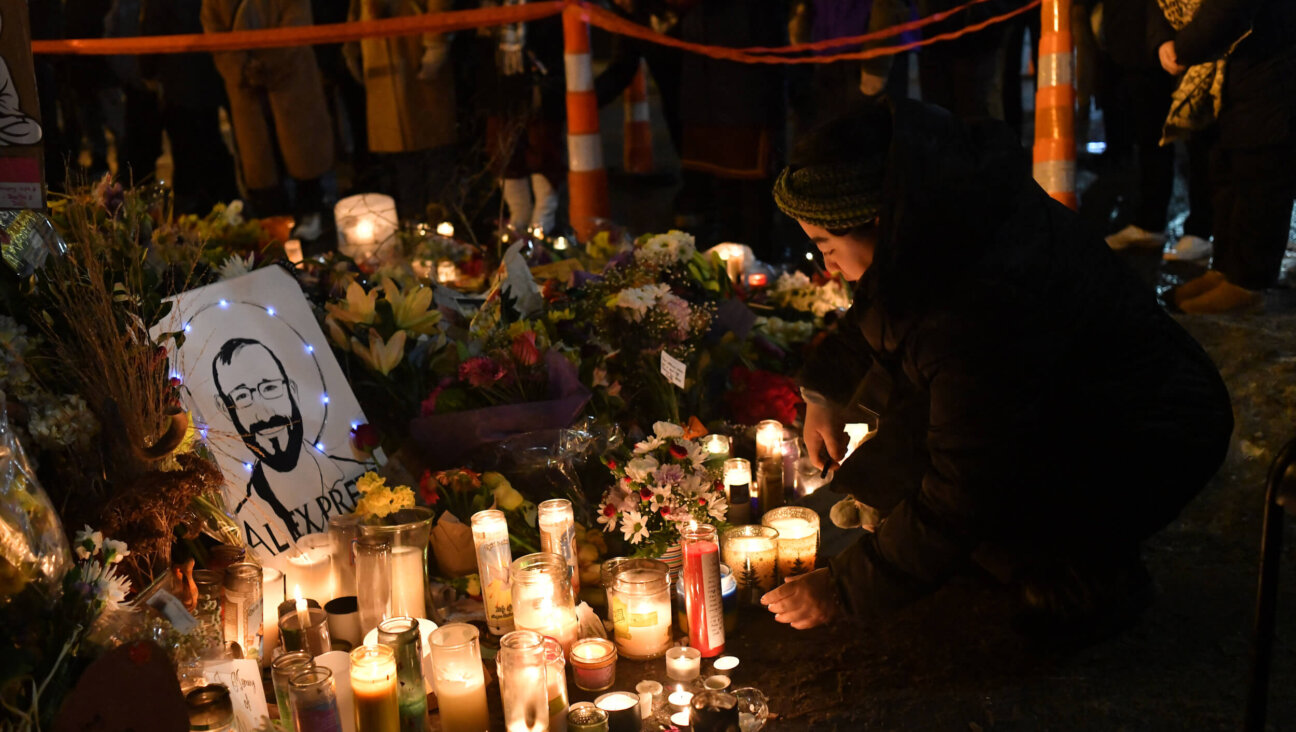Why Courage Matters
One in a series of occasional excepts from books that catch our eye.
This month, Random House releases “Why Courage Matters : The Way to a Braver Life,” by Senator John McCain, with Mark Salter. In it, McCain offers a number of profiles in courage, including one chapter on Hannah Senesh, the young Jewish woman who volunteered as a paratrooper for a rescue mission in Europe during World War II. Senesh was captured, tortured and executed by a firing squad in Budapest, Hungary, on November 7, 1944, at the age of 23.
Before her body was removed to the national military cemetery in Israel, Hannah Senesh’s remains rested in the Martyrs Section of Budapest’s Jewish Cemetery. An appropriate resting place, surely. But we have come by literary and religious tradition to see a martyr’s courage as the defensive kind, like that of the Christians who accepted the horrors of the Colosseum, the approach of the hungry lions, for their faith. Hannah had not needed courage only to suffer stoically. She took up arms for her cause. Her outraged conscience required her courage to go on the offense.
She had exposed herself to danger for the sake of others, endured torture rather than betray her mission and her ideals, and ultimately made the last and greatest sacrifice a human being can offer. But, and I am intrigued by the question, is it accurate to claim that she surrendered her life for her people? Or, like the early Christians, did she sacrifice herself for the sake of something encompassing but also surpassing human suffering?
It’s not clear from her diary or the recollections of others that Hannah had any firm religious convictions or that she even believed in the existence of God. It seems she had a chance to survive had she responded affirmatively to [the] invitation of clemency. Had she done so, neither her mission nor the people she had come to rescue would have been any the worse for it. She was not asked, at least not in advance of requesting clemency, to betray a confidence or inform on her comrades. Did she really need to accept martyrdom for her cause? Perhaps [she] would have [been] asked for something in return had she said yes. Perhaps [she] would have [been] shot anyway. But did she believe that before she spurned [the] offer so defiantly? That’s not clear.
So we are left with the distinct possibility that Hannah sacrificed her life for her dignity and sense of honor, which included a regard for others more compelling than her own life but that might not have involved them at the end.
We can understand and relate to—if only barely—the sacrifice of the soldier who throws his body on a grenade to spare the lives of his friends. We might not be capable of such a sacrifice ourselves, but we might entertain the fantasy that we are. But who among us fantasizes he is capable of dying for a principle alone that doesn’t immediately concern the welfare of others, but involves only his sense of honor as it affects his self-esteem? In such an extreme situation, wouldn’t any of us risk surrendering a little of our dignity in the not unreasonable hope that the injury could be repaired after we had survived our current predicament? We might feel disgraced somewhat, but couldn’t we recover from that by continuing to live honorably? What kind of courage is it that rejects such reasoning? Who possesses it? Who could fear that much an injury to his sense of honor that it prevents him from asking for his life?
…. Was it sublime fatalism that produced such tremendous courage? I have a hard time believing that. Such a vivacious, passionate girl, so full of life, seems to me the very archetype of a lover of life, exuberantly alive to the pleasures and discoveries of experience, to all the good things that come of living a good life. I think she wanted to live, but on the very exacting terms she had set for herself. She couldn’t live without something intangible but apparently essential to her. I don’t think it was a conceit, either.
I don’t think Hannah wanted to die for the sake of having her memory exalted in history or to prove herself equal to a romantic image she conceived for herself. Her heroism wasn’t a fashion. She made a choice to be heroic, but to be heroic in order to be true. Her purpose wasn’t to die. She died for her life’s purpose.
She resigned herself to death. Not in a spontaneous burst of courage, either, but on reflection well before the moment arrived, when she gave her heart to the kindling flame. Did she feel a desperate regret in her last moments? Who can say? It would have been the most normal reaction to her predicament despite the fact she chose it. All we know is that she made the choice, and accepted the consequence, without uttering a sound when death approached. She looked up at the sky and accepted it. Maybe it was fatalism that allowed her to die so gracefully. But it did not produce the courage with which she lived her brief life.
…. When I’ve experienced difficult times or been in situations that portend uncertain or intimidating consequences, I usually find a little false bravado, a little affected fatalism, helpful. Somewhere in the course of my life, I picked up an incantation of my own, a made-up quotation that I attribute to Mao Zedong (for reasons I have forgotten long ago). “Remember the words of Chairman Mao: It’s always darkest just before it’s totally black.” I used to invoke this proverb in more perilous circumstances than I usually find myself in lately. These days I am reduced to sharing its wisdom with my staff when we are discussing an unappealing political choice or a losing legislative strategy.
Though the occasions when I use it are less than heroic, its uses are the same: to affect a studied nonchalance, to appear indifferent to fortune, while persisting in a chosen course of action. It might increase my resolve, but I don’t really need much courage for the challenges most frequently encountered in a political career. Political courage in our consensual political system is seldom all that courageous. The threats are rarely greater than a lost argument, an adverse policy decision in a country that can survive it, or defeat at the polls. Sometimes politics can threaten our reputation and tempt our honor. But most often the threats we face with political courage are disappointments, not lasting injury. And they’re usually not the frightening variety.
Even people who try to conjure up fatalism to endure a genuine encounter with fear are not really fatalistic. They aren’t truly resigned to all that fate holds for them. It’s a technique, of some value, to help quiet their anxiety. Only mystics or people supremely confident they will soon enjoy the rewards of heaven seem to me to be capable of true fatalism, and the courage it gives them will never be possessed by the less enlightened of us.













